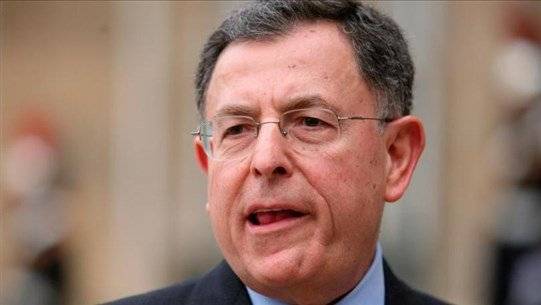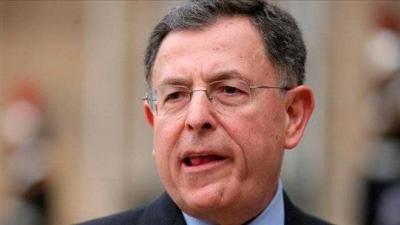Lebanon began its maritime border demarcation process before Israel. It signed an agreement with Cyprus but left the two key points in the north and south undisclosed, as they required an agreement with the two other concerned countries, Syria and Israel. However, Cyprus did not respect the agreement with Lebanon and proceeded to sign an independent deal with Israel, disregarding that this agreement harmed Lebanon's interests. Multiple Lebanese governments have addressed this file, starting with President Fouad Siniora's government formed in 2005, which initiated the demarcation process, followed by his second government after the election of General Michel Sleiman as President in May 2008, and then Prime Minister Saad Hariri's government formed post-2018 elections, and Prime Minister Najib Mikati’s government formed after the fall of Hariri’s government due to the resignation of the Shiite duo ministers and the “Free Patriotic Movement” in early 2011. In all these governments, “Hezbollah” was represented, and the demarcation processes continued, extending into President Tammam Salam's government in 2014, all the way to the current phase where Saad Hariri’s governments in 2016 and President Michel Aoun’s presidency were also involved, leading to the current government under Prime Minister Najib Mikati.
In the first episode, President Fouad Siniora narrated the birth of the demarcation processes and the political and technical foundations upon which they were built, detailing the points adopted in the north and south. In this episode, he discusses the Israeli demarcation and Decree 6433, around which significant controversy still exists in Lebanon. While this controversy continues to hinder exploration and exploitation of this oil wealth, Israel has advanced through the stages and commenced extraction and export activities.
What does President Siniora recount having moved beyond the Council of Ministers? President Siniora continues:
Fourth: On July 12, 2011, Israel unilaterally demarcated the boundaries of its exclusive economic zone with Lebanon, namely the Naqoura line - point "1", and submitted the coordinates of that demarcation to the relevant UN offices. This occurred a full year after Lebanon had submitted, on July 14, 2010, the coordinates of its maritime borders with the Israeli adversary, namely the Naqoura - point "23". It is noteworthy that Israel, in its letter to the UN, deemed and acknowledged that the demarcation it performed is not final, as it may amend the coordinates of point "1" mentioned in both the Lebanese-Cypriot and Israeli-Cypriot agreements after a final agreement between the concerned states.
Nonetheless, Lebanon again objected to that demarcation through a letter sent by the Lebanese Foreign Minister on September 3, 2011. In that letter, the Lebanese Foreign Minister requested the UN Secretary-General to assign necessary personnel to draw a line compatible with the Lebanese maritime borders submitted by Lebanon to the UN, akin to the Blue Line on land. However, the aforementioned Lebanese letter to the UN Secretary-General did not refer to paragraph ten of Resolution 1701, which grants the UN the authority to assist in this regard upon Lebanon’s request. Nevertheless, the UN Secretary-General’s response came in a letter to the Lebanese Foreign Minister dated October 18, 2011, stating that this matter requires an agreement from the concerned parties and/or specific authorization from the Security Council.
Fifth: On August 18, 2011, Law No. 163 was issued, determining and declaring the maritime areas of the Lebanese Republic. Based on this, the government was tasked with issuing a decree to delineate the Lebanese maritime borders. Before issuing this decree, Prime Minister Mikati's government had tasked the UK Hydrographic Office (UKHO) to prepare a study for demarcating the Lebanese maritime borders before issuing the related decree. This study was issued on August 17, 2011.
In light of the above, the Lebanese government then decided to maintain what was reached by the special committee whose results were released in 2009, affirming what previous Lebanese governments had done in years 2007-2008-2009. Therefore, Decree No. 6433 was issued on October 1, 2011, by Prime Minister Mikati's government, adopting the works of the committee formed at the end of 2008 and the decision issued by the Cabinet No. 51 in 2009. It is also noteworthy that in that government, which included representatives from "Hezbollah", who held significant weight therein, the government’s decision reaffirmed Hezbollah's knowledge and direct approval of what the Lebanese government had undertaken in steps and decisions from 2007 to 2011.
Sixth: In 2012, Prime Minister Mikati’s government formed another special committee to revisit the issue of delineating the exclusive economic zone of the Lebanese state. This new committee was constituted based on Cabinet Decision No. 75/2012 dated May 11, 2012. It confirmed the work achieved by the Lebanese committee formed in 2008, reiterating that the actions of the Lebanese government and the committee established by it in 2008 concerning the demarcation of southern Lebanon’s boundaries in the exclusive economic zone were "originally to secure an advantageous position for Lebanon in defending its stance in future negotiations on the final borders." Thus, this new committee also confirmed the correctness of what the Lebanese government and the committee had undertaken in 2008, which studied the draft agreement between Lebanon and Cyprus and affirmed its accuracy, and completed the demarcation unilaterally to the north with Syria and to the south with occupied Palestine by delineating points 23 in the south and seven in the north.
Seventh: What happened subsequently?
I - Initially, at that time, the American envoy Hoff proposed a solution to the raging dispute between Lebanon and "Israel" regarding the area between the southern points 1 and 23, which spans approximately 860 km², suggesting that Lebanon acquire approximately 500 km² of that area, while Israel would receive 360 km². Lebanon objected to this and demanded that an agreement be reached through the UN.
II - Secondly, there were communications at multiple levels with the UN Secretary-General to urge him to intervene and assist in demarcating the maritime borders of Lebanon's exclusive economic zone. There were also contacts with American officials tasked with following up on this matter, who also contacted President Berri and me, where we coordinated our position on this issue with President Berri, expressing a unified viewpoint in this regard.
III - In this context, through a personal initiative and by virtue of my close friendship with the UN Secretary-General Mr. Ban Ki-moon, I reaffirmed in a letter sent to him on March 29, 2014, emphasizing a previous request I made to him in 2012 on the necessity for the UN to act, based on Resolution 1701, particularly in its tenth article, which allows the UN to assist in demarcating the maritime borders in the exclusive economic zone of Lebanon; I reiterated this point on several occasions in writing and verbally.
IV - Additionally, before the assumption of the new Secretary-General Mr. António Guterres, I also urged him in a letter to pay attention to the issue of demarcating Vietnam’s exclusive economic zone boundaries, also based on what the tenth article of that resolution allows in determining Lebanon’s southern borders.
V - Thirdly, populist media campaigns against me continued, aimed at, as usual, stirring public excitement and claiming purity and false heroics, monopolizing national stances and accusing others of betraying national rights to defame them, emphasizing that Lebanon is not prepared to compromise its rights in the south of its exclusive economic zone, while others are blamed for capitulation, as claimed by the party regarding the actions of my governments. This occurred despite the affirmation highlighted by Mikati's government, in which "Hezbollah" held significant weight, of the correctness of what my governments undertook in this regard through the issuance of Decree No. 6433 dated October 1, 2011, concerning determining the boundaries of the exclusive economic zone, as well as based on the works of the committee formed by Mikati’s government on May 11, 2012, to scrutinize and revisit the issue of demarcating the Lebanese state’s exclusive economic zone boundaries.
VI - On February 2, 2017, one week after Lebanon announced opening maritime blocks 8, 9, and 10 for bidding during the first licensing round, the Israeli enemy sent a letter to the UN objecting to Lebanon's move regarding starting procedures related to petroleum activities in the disputed maritime area, stating that it would not allow oil companies to carry out exploration, drilling, or invest in those resources.
On March 20, 2017, the Permanent Mission of Lebanon to the UN sent a letter to the UN objecting to the latest Israeli letter threatening Lebanon. This Lebanese message affirmed that maritime blocks 8, 9, and 10 lie entirely within Lebanon's exclusive economic zone. Furthermore, the message reiterated the coordinates of the maritime boundaries with occupied Palestine that Lebanon had submitted to the UN Secretary-General on July 14, 2010, and October 17, 2011, as well as reminding of two previous letters dated June 20, 2011, and September 3, 2011, in which Lebanon objected to the maritime border demarcation agreement between Cyprus and Israel in December 2010 and Israel’s deposit of the coordinates of its northern boundaries with Lebanon in July 2011.




